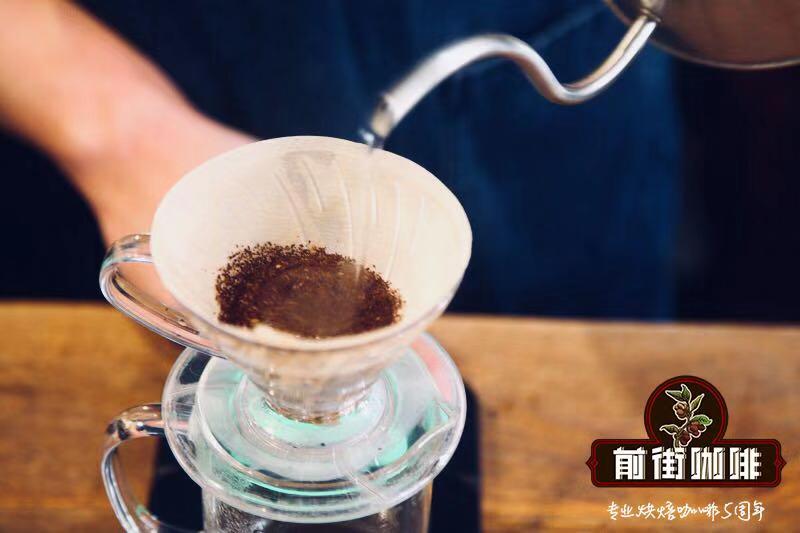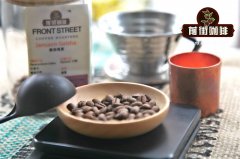What are the characteristics of Salvadoran coffee? introduction to the flavor of Salvadoran black honey coffee

Professional coffee knowledge exchange more coffee bean information please follow the coffee workshop (Wechat official account cafe_style)
Introduction to Front Street Coffee-Salvadoran Coffee
The history of Salvadoran coffee
El Salvador, known as the "country of volcanoes", is the smallest country in Central America. Since the mid-17th century, coffee grown here has been mainly used for domestic consumption. But over the next 100 years, coffee gradually became a stable and important crop. Especially in the late 19th century, El Salvador's original export pillar indigo (Indigo, a kind of dye) industry gradually declined by the development of synthetic dyes in Europe, and coffee gradually became the main export product under the leadership of the government.
By the late 1970s, coffee exports accounted for 50% of GDP. But socio-economic and political upheavals have plunged the country into more than a decade of civil war. In the 1980s, various land redistribution policies and land reforms disjointed the coffee industry and led to a decline in the market. Due to a lack of resources to continue to grow, coffee producers abandoned their coffee plantations and allowed coffee to grow freely and not to be harvested until a peace agreement was reached in the 1990s. The only benefit of the civil war for El Salvador was that farmers left their fields barren in the 1980s (when many other coffee-producing countries were replacing ancient coffee varieties with higher-yielding and more disease-resistant coffee). So the ancient bourbon and Tibica varieties were preserved.
When the "excellent Cup" competition first came to El Salvador in 2003, due to some specific local varieties (the ancient bourbon, Tibica, and the local dwarf bourbon variety Pacas, as well as the hybrid variety Pacamara), El Salvador has gained a high reputation in the field of boutique coffee. Unfortunately, these famous varieties are particularly vulnerable to coffee leaf rust. In particular, bourbon (both Pacas and Pakamara have genetic material from bourbon) does not have enough cold tolerance to fight the disease, and the country's coffee was affected by the latest outbreak of coffee leaf rust in the 1910s. resulting in a decline in quality and yield.
Flavor
El Salvador's highest-yielding bourbon coffee is characterized by a milder flavor and a chocolate-like mellow taste compared with Guatemalan small-grain coffee. Although Pacamara coffee tastes good, it has a sour aroma similar to that of iron pickup coffee.
END
Important Notice :
前街咖啡 FrontStreet Coffee has moved to new addredd:
FrontStreet Coffee Address: 315,Donghua East Road,GuangZhou
Tel:020 38364473
- Prev

How about Peruvian coffee? what's different about Peruvian coffee?
Professional coffee knowledge exchange more coffee bean information please follow coffee workshop (Wechat official account cafe_style) front street coffee introduction: Peruvian coffee producing areas what coffee producing areas are there in Peru? The coffee producing areas of Peru are mainly divided into three parts, the north, the central and the south. Longbach's younger brother mainly went to the producing areas of Huning, Cusco and Puno in the central and southern parts of the country.
- Next

What is the treatment of El Salvador bourbon coffee? introduction to the taste of Salvadoran coffee beans
Professional coffee knowledge exchange more coffee bean information please follow the coffee workshop (Wechat official account cafe_style) Qianjie Coffee introduction-Salvadoran coffee flavor: balanced taste, excellent texture suggested roasting method: medium to deep, there are many uses of quality beans: El Salvador SHB taste characteristics: sour, bitter, sweet mild and moderate. Salvadoran Coffee and Mexico and Melon
Related
- Beginners will see the "Coffee pull flower" guide!
- What is the difference between ice blog purified milk and ordinary milk coffee?
- Why is the Philippines the largest producer of crops in Liberia?
- For coffee extraction, should the fine powder be retained?
- How does extracted espresso fill pressed powder? How much strength does it take to press the powder?
- How to make jasmine cold extract coffee? Is the jasmine + latte good?
- Will this little toy really make the coffee taste better? How does Lily Drip affect coffee extraction?
- Will the action of slapping the filter cup also affect coffee extraction?
- What's the difference between powder-to-water ratio and powder-to-liquid ratio?
- What is the Ethiopian local species? What does it have to do with Heirloom native species?

